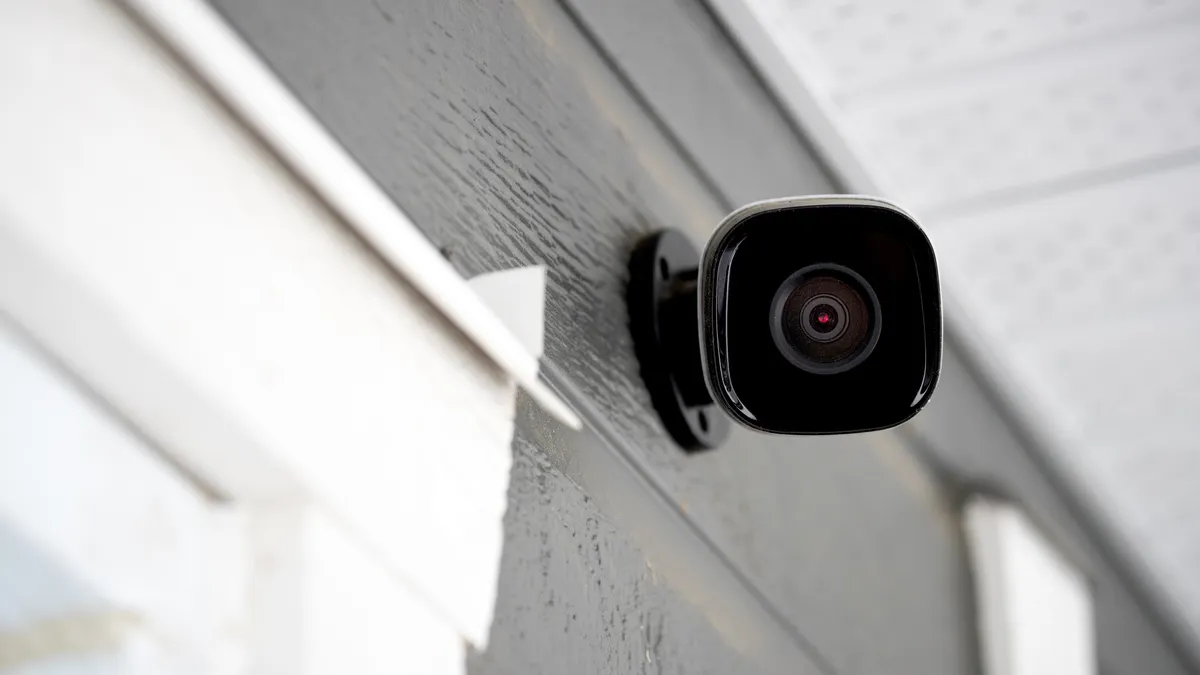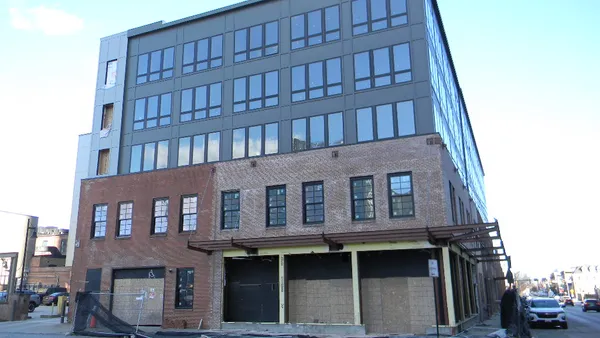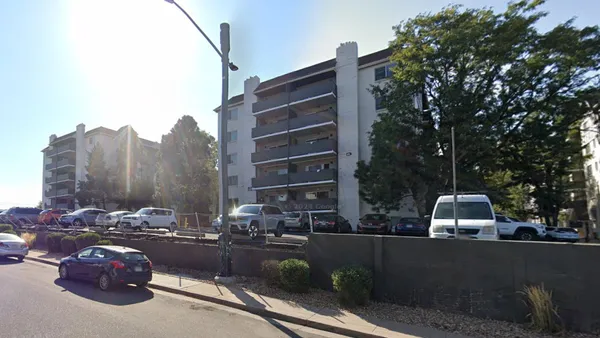Dive Brief:
- Two lawmakers asked HUD Secretary Marcia Fudge last month to end the use of biometric technology, including facial recognition, for surveillance purposes in public housing.
- Among Congresswomen Maxine Waters and Ayanna Pressley’s concerns is the use of surveillance to harass or punish residents for minor rule infractions, as well as the impact on residents of color, who are “more likely to be inaccurately identified and wrongfully penalized,” according to the letter.
- “These policies run directly counter to the goal of increasing housing stability and fairness through HUD-provided housing, which is all the more critical in light of the devastating housing crisis facing our nation,” the lawmakers wrote. “Your agency must act in this critical moment to ensure public housing and HUD-assisted housing residents are not targeted by these discriminatory surveillance systems.”
Dive Insight:
Biometrics are digital measurements of a person’s physical characteristics, including fingerprints, palm prints, voiceprints and face shape and structure. Once collected, these biometrics can be used as unique identifiers, according to Bloomberg Law.
Facial recognition has seen widespread adoption among law enforcement and government agencies — raising concerns about data privacy, accuracy, racial bias and abuse of the collected data.
A Washington Post report on surveillance in public housing lists 13 cities that have purchased cameras with facial recognition capabilities with HUD grants in recent years. Seven have no intent to use the technology, while six — Cincinnati, Omaha, Grand Rapids, Michigan, Duffield, Virginia, Steubenville, Ohio, and Union City, Tennessee — plan to monitor for banned individuals, assist police investigation or, in Cincinnati’s case, search for lease violations.
In a notice issued in April, HUD stated that automated surveillance and facial recognition technology was not an approved use of the agency’s safety and security funding. Approved uses include standard, non-biometric security cameras, fencing, lighting systems, doors and deadbolt locks and emergency alarms. The Post report notes this does not apply to cameras already purchased.
Multiple studies have cataloged divergent error rates across demographic groups in facial recognition technology classification, with women of color the least likely to be accurately identified. A 2018 study from the Massachusetts Institute of Technology found that three commercially released facial analysis programs had a margin of error between 20% and 34% when identifying dark skinned women, compared to 0.8% or lower for light-skinned men.
“We know that these technologies have a significant discriminatory impact that arises from identification errors related to individuals’ skin color, gender, and age and other forms of bias built into these systems,” said Pressly and Waters in their letter to HUD. “This means that the likelihood that a resident of color will be blamed for a violation they did not commit increases substantially with the adoption of these technologies.”
Pressley represents the cities of Boston, Somerville, and Cambridge in Massachusetts, which have all outlawed the use of biometric recognition technology, according to a press release. She has also supported multiple bills to ban the technology nationwide, including the Facial Recognition and Biometric Technology Moratorium Act, introduced in March.
San Francisco, Baltimore, Pittsburgh, Minneapolis, New Orleans, Portland, Oregon, Portland, Maine, and the state of Vermont are among the municipalities that have banned the use of facial recognition technology by some or all government entities. Other states and municipalities have enacted biometric privacy laws, including Illinois, California, Colorado, Connecticut and New York City.
Despite the controversy, property owners see biometric and other tech-enabled security as a way to protect their assets from crime and violence.
“Managers and owners — whoever is running the show — have a duty to exercise reasonable care to keep the property safe,” Atlanta-based personal injury attorney Matthew Stoddard of The Stoddard Firm said on the question of property security. “If you’re running an apartment complex, you’re kind of the mayor. You’re in charge of trash collection, keeping the city nice and the safety component. You can’t prevent all crime — that’s totally acknowledged — but you can do lots of things that will lessen crime.”













